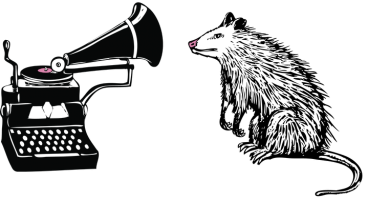by Victoria Bird
From Spring 2018
It isn’t the first album she’s ever bought—she’s almost sixteen—but it’s the one she remembers. The one she always tells people was the first.
She buys it with her pocket money from the Woolworths in the high street. The Saturday checkout boy, with curtains like Christian Bale, glances at the CD cover. Takes the measure of her and smirks. Mainstream. She tries to speak, opens her mouth and swallows, makes a gagging sound. Drops the money on the counter and leaves, but the heat is already stroking her neck.
So, she can’t take it back when she gets home and realises it’s scratched to buggery.
She bought it for one track, that’s all.
She sings into her hairbrush, comes in too soon, gets the lyrics wrong, da-da-das her way to the chorus. She’s used to the round American sound—even Brits sound American when they sing. But this true-blue London accent is like a finger poked through the sleeve of a wool jumper. It is cheeky. Crisp. Lonely.
Then she discovers its scars—frenzied bursts of white noise. The first catches just before a major fifth leap that would have made the melody soar. The next blocks out the lines before the second chorus, so the song surges straight to the climax with no warning.
But it always clears for the chorus. It has its rules, then.
Its scars ripple silver through the rest of the track—a thousand little cuts that plummet her into a new line, try to throw her off. Change the rhythm so she can’t rely on the sound, can’t tap the table or jog her knee to it. Can’t let it fade into the background.
It’s a horse that refuses to be broken in. But still, at a time in her life when she is too self-conscious to dance, she moves to this.
She plays it again, turns it up so loud that it makes the world a humming bass note clawing between her breastbone and navel—makes her remember her heart and its beat.
There’s one note that sounds like her mother calling her down for tea, and they stop, she and the music, caught like lovers kissing. But she’s too young for all that. She hasn’t loved and lost, as her mother said she must do to recognise the real thing when she sees it.
At university, she hears it at a theme party—it’s been years since it was in the charts. It hovers in the corner, waiting for her, sulking like an old boyfriend from home. She digs out the CD again, traces a finger along the scars. Gets lost, gorges herself once more.
When she is sick, it cradles her like a lover. Like a mother. Threads its way through feverish dreams, needles her awake.
“Do you really listen to this?” asks the boy she loves, the first one she’s ever loved. Then she wants to crush it underfoot, but she can’t, because it’s broken and alone, and it’s calling to her like something stricken and gaunt that has fallen and can’t get up. She bites her lip until she can feel a warm lump beneath the surface. Tears back a ribbon of skin with her teeth until she can taste the metal in her blood.
She buys the album again with her first pay check. She braces, flinches, waiting for the slap that doesn’t come. The new track is too smooth, it slip-slides. It looks straight through her.
She deletes it. It was a fancy, nothing more. She’s hooked on the old one, like a lover’s punch.
But she pays for it—throws herself onto her bed and buries her head in her pillow as it bruises and bites and scratches her once more. Digs her fingernails into her bedsheet and takes the punishment. Lets it take her back again, because she knows now what it must do.
On her morning train, the song dances impishly through the scent of newspaper ink and aftershave and flakes of aspartame floating in her coffee. It makes her laugh at her own reflection in the wink of each tunnel—it knows just how.
She returns home to it every night. Screams through the silvered scars when she’s angry. Jabs the stereo off when she’s tired of it, only to find it humming in her throat, then grabbing and shaking her, pulling her hair and yanking her head back while she giggles because she can feel again, and she’s been forgetting how.
It wakes her early that last morning—brushes her hand, which has grown dried and flat as a pressed flower. It scratches at her dreams, then crawls up and over her, hot and rosy as smoke. The first verse burrows into her ear like a vial of hebenon, and the chorus grows louder than she can bear, rending membranes and ringing her heart like a gong. The static hisses in her blood, makes her writhing breath a shallow, glottal tide. Her chest splits. The melody spreads its fingers through her, drawing her out, breaking her apart.
Her last diphthong is when sound turns colour—the fluttering, oily chromatic of a starling’s wing.
And before it fades, with a cymbal choke and a kick drum, it lays her down blue.
